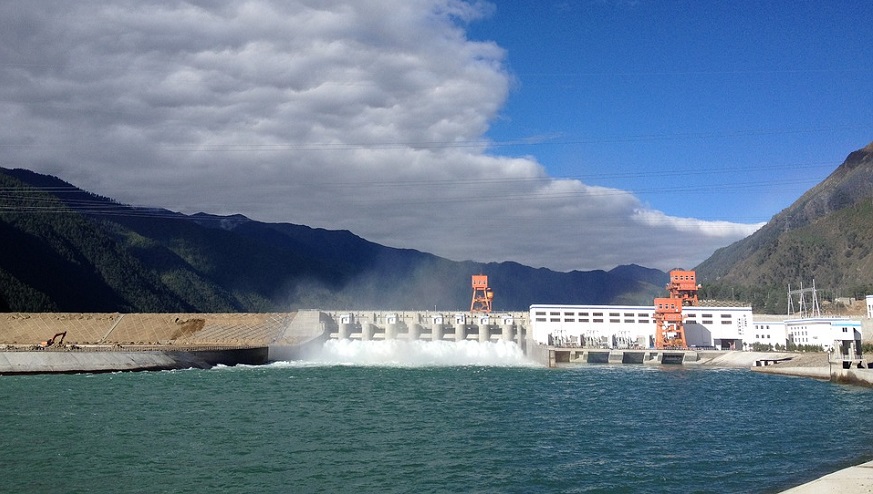
Study finds hydropower GHG emissions can be higher than facilities burning fossil fuels
November 15, 2019Hydropower isn’t always an eco-friendly energy source.
Hydropower facilities have long been criticized for their negative impacts on wildlife, but a new study has found that, in some cases, hydropower GHG emissions can be worse than facilities that burn fossil fuels.
The climate impact of hydroelectric plants varies widely around the world.
On the whole, while hydroelectricity is certainly a cleaner energy production method compared to fossil fuels, findings from a new study published in the ACS’ journal Environmental Science & Technology say that some hydropower facilities emit more greenhouse gas (GHG) emissions than those burning fossil fuels, Science Daily reports.
The reason is that the climate impact of facilities that generate electricity from water varies across the world and over time. The amount of hydropower GHG emissions can go up or down depending on what is occurring in the surrounding landscapes.
For instance, changes in carbon dioxide (CO2) emissions occur when natural landscapes are flooded to generate reservoirs for hydropower plants. Additionally, there is near-term warming from associated methane emissions.
Researches conduct a thorough examination of hydropower GHG emissions and their impact on the climate.
Discovering that the majority of studies regarding hydropower’s climate impact have neglected specific factors, researchers Ilissa Ocko and Steven Hambrug decided to conduct a more in-depth analysis of the climate impacts that these alternative energy facilities can have over time.
The researchers looked at 1,473 hydroelectric facilities in 104 countries and analyzed the climate impacts over time of methane and carbon dioxide emissions. Additionally, they estimated emissions resulting from flooding the reservoir.
They learned that emissions from hydropower were, on average, far higher and worse for the environment than emissions from solar, wind and nuclear power installations. However, they were better for the climate compared to emission from natural gas and coal utilities.
That being said, there were some cases where certain hydroelectric plants were worse for the climate than coal and natural gas, both now and in the long term. The reason is that these facilities had high methane emissions, which have a large impact on global warming.
Additionally, the researchers learned that emissions varied by region. For example, while in Western Europe new hydroelectric facilities had near-zero climate impacts, those in Western Africa were worse for the climate than natural gas and coal plant over all timescales. The researchers believe that their findings should be considered when developing and building new hydroelectric plants.
According to the International Energy Association, hydroelectricity currently makes up two-thirds of the power generated from renewable sources worldwide. With thousands more new hydropower facilities either planned or  under construction around the world, studies that focus on hydropower GHG emissions climate impact are becoming increasingly important.
under construction around the world, studies that focus on hydropower GHG emissions climate impact are becoming increasingly important.



 HFN News is your leading source for fresh hydrogen and renewable energy updates. Amid the fast-paced growth of hydrogen companies, we provide top-notch news and insights about this exciting sector. Our coverage spans from hydrogen cars to global sustainable initiatives, and we highlight the latest in green jobs and developing hydrogen hubs. We invite you to share your local hydrogen news and explore today’s renewable energy job listings on our site. Thanks for choosing HFN News as your trusted guide to the hydrogen and renewable energy world!
HFN News is your leading source for fresh hydrogen and renewable energy updates. Amid the fast-paced growth of hydrogen companies, we provide top-notch news and insights about this exciting sector. Our coverage spans from hydrogen cars to global sustainable initiatives, and we highlight the latest in green jobs and developing hydrogen hubs. We invite you to share your local hydrogen news and explore today’s renewable energy job listings on our site. Thanks for choosing HFN News as your trusted guide to the hydrogen and renewable energy world!
